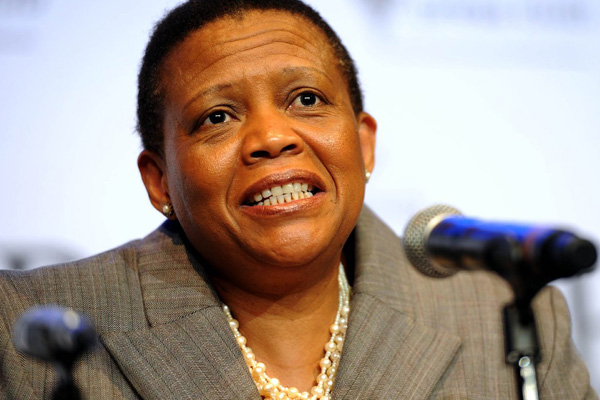The Centre for Human Rights (CHR) University of Pretoria, and the Institute for Democracy in Africa (IDASA), in collaboration with the Special Rapporteur on Freedom of Expression and Access to Information in Africa, Commissioner Pansy Tlakula, held a West and Central Africa consultation on the African Charter on Democracy, Elections and Governance and the Draft Model Law for AU Member States on Access to Information from 10 to 12 October 2011, in Dakar, Senegal.
Representatives of Ministries of Justice and Foreign Affairs, Parliament, Election Management Bodies, National Human Rights Institutions, Media and Civil Society from nineteen countries namely: Benin, Burkina Faso, Cameroon, Central African Republic, Chad, Congo, Cote d’Ivoire, Democratic Republic of Congo, Gabon, Gambia, Ghana, Guinea, Liberia, Mali, Niger, Nigeria, Sierra Leone, Senegal and Togo, participated in the consultation.
On the first day of the consultation, discussions were held on the potential usefulness of the Democracy Charter in addressing contemporary challenges in Africa, such as tackling unconstitutional changes of government, safeguarding the integrity of the electoral process, combating corruption and aiding development. The next day, participants shared experiences on the progress and challenges encountered in the ratification and domestication of the Democracy Charter in their respective countries.
Consequently, participating countries were classified into three groups: States that have ratified the Charter and deposited their instruments of ratification; States that have ratified but have not deposited their instruments of ratification and States that are yet to sign or have signed but are yet to ratify the Charter. Subsequently, each of these groups was tasked with developing specific Plans of Action to implement or to expedite the deposit of instruments of ratification or to ratify the Democracy Charter.
In however emerged from discussions that five countries namely: Benin, Chad, Cameroon, Niger and Nigeria have ratified the Democracy Charter, but for various reasons are yet to deposit their instruments of ratification at the African Union AU Commission in Addis Ababa, Ethiopia. Bearing in mind that only five more ratifications are required to secure the coming into force of the Democracy Charter, representatives from these five countries presented Plans of Action to ensure the speedy coming into force of this treaty.
Thereafter, a consultation was held on the Draft Model Law on Access to Information, which has been developed pursuant to Resolution 167 (XLVIII) 2010 of the African Commission on Human and Peoples’ Rights (ACHPR), authorising the Special Rapporteur to initiate the process of developing a model access to information legislation for Africa.
Presentations on the content of the working draft of the Model law were made by some members of the Model Law Working Group which developed the present draft, followed by extensive discussions by participants in the form of comments, questions and suggested improvements.
The feedback received from this consultation, together with those received at further subregional public consultations, will guide and inform any necessary amendments to the working draft of the Model Law. The next consultation, which is for North Africa, is scheduled to hold in January 2012, in Cairo, Egypt.
Once finalised, it is expected that the Model Law will be adopted by the ACHPR at its 51st Ordinary Session in April 2011, to guide Member States in their adoption or review of access to information laws, and provide uniform benchmarks for evaluating their effective implementation
Financial support for this meeting was provided by the Open Society Initiative for West Africa (OSIWA), the Open Society Initiative for Southern Africa (OSISA) and the Institute for Democracy in Africa (IDASA).
Download the Action Plans:
![]() Central Africa
Central Africa
![]() Democratic Republic of the Congo
Democratic Republic of the Congo
![]() Mali
Mali
![]() Senegal
Senegal
